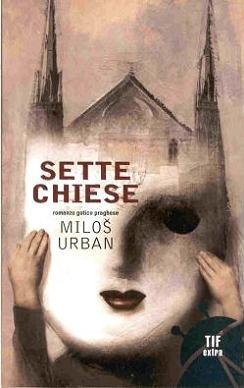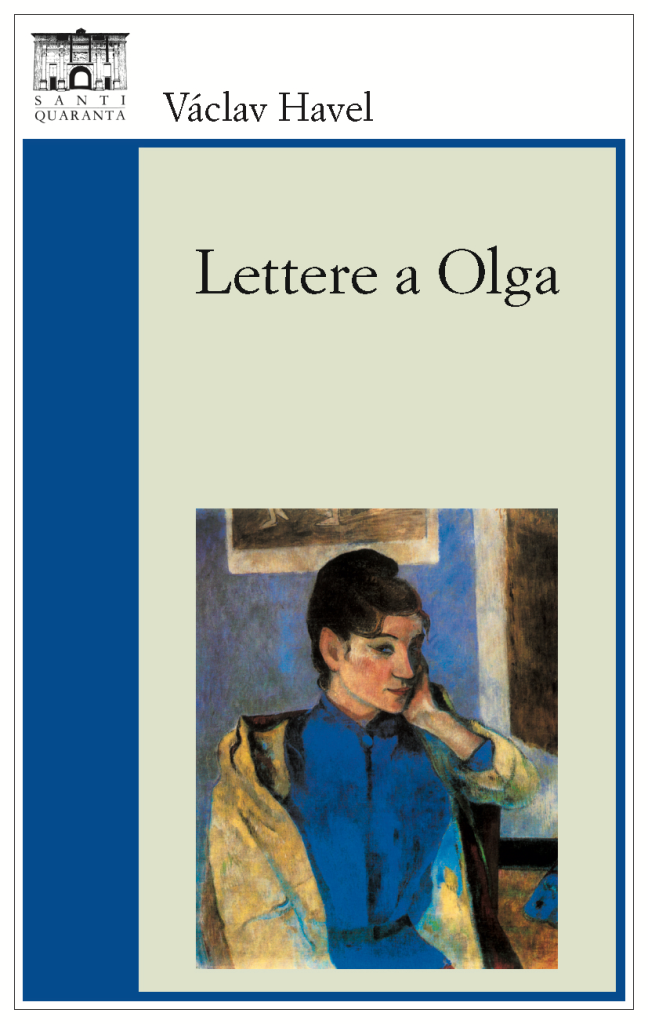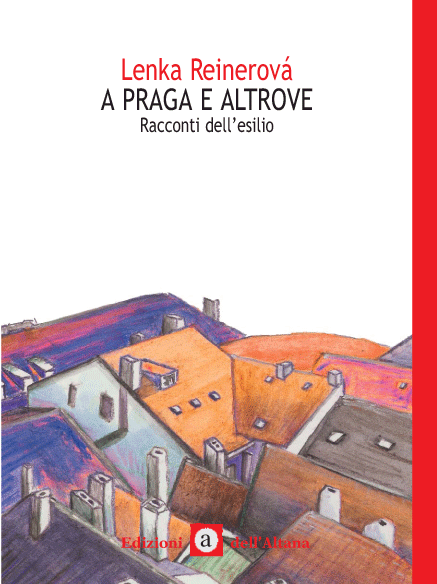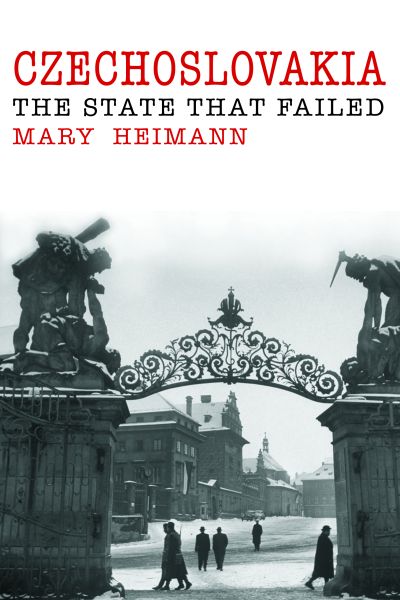Kvĕtoslav Švach is an ex policeman who is fond of medieval history and who calls himself K. (a quick analogy with Josef K. of “Kafka’s Trial”. K’s boring life is shaken when he becomes witness to the murder of an architect in the Prague church of S. Apollinaris. The police ask him for help in its enquiry into a series of strange murders which specifically involve engineers, architects and staff responsible for the city’s urban appearance. K. gets in touch with Matyas Gmund, a rich man, who is involved in financing the restoration work that is being carried out to restore a few Prague churches to their original Gothic style, purifying them from the Baroque influence that followed. Behind this project is the Corpus Domini brotherhood, to which K will make grant his uncommon historical knowleldge, unaware of the role that has been assigned to him in this bloodstained conspiracy.

Miloš Urban, Sette chiese ( tit. or.: Sedmikostelí), Fanucci publisher: Roma 2009, 384 pages, thriller and noir
Letters to Olga is a literary work made up of more than one hundred letters, written by Václav Havel to his wife, while in prison during the period between June 1979 and September 1982. The collection of letters is characterized by a philosophical vision and in part by metaphysics, where one may read the influence that the ideas of the philosopher Emmanuel Lévinas had on the Czech playwright and thinker. The relationship between mystery and reality; man as a “ living miracle”; freedom; the sense of responsibility and a tendency to break up the materialistic ideology of contemporary philosphy, together with the arrogance of scientism, represent only a few of the features and themes dealt by Havel in his letters. A key figure of dissent towards the comunist regime and future president of the Chechoslovak Republic, Havel is still very active on the Czech Republic political and cultural scene.

Václav Havel, Lettere a Olga, Santi Quaranta editrice: Treviso 2010, 488 pages
“I still believe today that the closeness of people in their fight for a better life, has definitely marked my existence since my early childhood…” thus wrote Lenka Reinerová, whose life is in no way inferior for richness to that of a verist novel. Her biography is partly reflected in these four stories; four real life situations seen through the sensitiveness of a young, persecuted Jewish woman. The escape from Prague to Paris because of the nazi persecutions;
The first stimulating period in Paris together with other refugees, artists and writers; imprisonment followed by a new escape abroad, first in Morocco and then to Mexico and finally the return to Prague. All this scanned by these four stories, which include, with the intensity and emotions of short novels, glimpses of real life, at times striking, at other times ironic or grotesque, but always suggestive and enthralling.

Lenka Reinerová, A Praga e altrove. Racconti dell’esilio, Edizioni dell’Altana: Roma 2009, 176 pages
With this essay, the author, Mary Heimann, wanted to demolish the myths which Czechoslovakian history is founded on. A book that really does not spare anybody. Alexander Dubcek, who is generally considered a symbol of the Prague Spring Velve revolution and freedom, is seen as an unscrupolous bureaucrat. The composer, Antonin Dvorak, is defined as an “Austrian Slav”. Czechoslovakia was not a victim of the Munich Pact but, according to the author, it was a State affected by nationalistic sentiment and shared with the nazis, the responibility for the persecution of the Jews and Gypsies. Evils which, at the end of World War II, were to to cause the establishment of a comunist police state, with the consent of the majority of the population. It is a book which has aroused much controversy in the Czech Republic and the accusation to Heimann of having a scarce knowledge of the history of this Country.

Mary Heimann, Czechoslovakia: The State That Failed, Yale University Press, 31 Oct 2009, Historical




